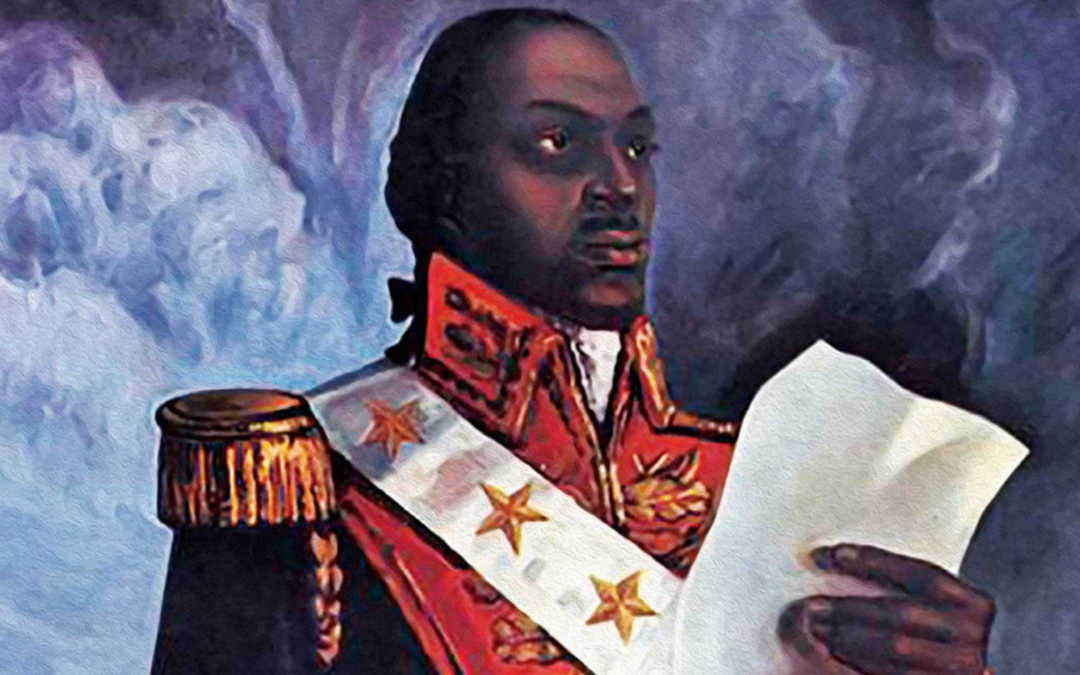Toussaint L’Ouverture: The Liberator of Haiti

Toussaint L’Ouverture, born on May 20, 1743, in Saint-Domingue (now Haiti), emerged as a central figure in the Haitian Revolution, the most successful slave rebellion in history. His leadership and strategic acumen were crucial in transforming a colony of enslaved people into the first independent black republic. Known as the "Black Napoleon," L’Ouverture's life is a testament to his extraordinary vision, courage, and determination to achieve freedom and equality.
Early Life and Background
Toussaint L’Ouverture, born François-Dominique Toussaint Bréda, was of African descent and born into slavery on the Bréda plantation. His early life was relatively privileged for a slave; he was literate and had some degree of autonomy. Influenced by Enlightenment ideas and the political upheavals of his time, L’Ouverture’s intellectual and leadership skills were apparent early on.
The Haitian Revolution
The Haitian Revolution began in 1791 as a slave uprising inspired by the French Revolution's principles of liberty, equality, and fraternity. It quickly grew into a complex and brutal conflict involving enslaved Africans, free people of color, and colonial powers.
- Initial Stages: L’Ouverture initially joined the rebellion as a healer and advisor. His strategic brilliance soon became evident, and he quickly rose through the ranks, uniting disparate rebel factions under his command.
- Alliance and Shifting Loyalties: L’Ouverture adeptly navigated alliances with the Spanish and later the French. In 1794, after the French National Convention abolished slavery, L’Ouverture allied with the French Republic, which was then fighting to retain control of Saint-Domingue against British and Spanish forces.
Leadership and Governance
L’Ouverture’s leadership extended beyond military prowess to effective governance and diplomacy. By 1797, he had become the de facto ruler of Saint-Domingue, working to stabilize and rebuild the war-torn colony.
- Economic Reforms: Understanding the importance of a strong economy, L’Ouverture revitalized the plantation system but with significant reforms. Enslaved people were emancipated but were required to continue working the land, now as paid laborers, to ensure economic productivity.
- Constitution of 1801: In a bold move, L’Ouverture promulgated a new constitution in 1801, declaring himself Governor for Life of Saint-Domingue and asserting autonomy from France. The constitution abolished slavery permanently, promoted racial equality, and attempted to balance economic needs with the ideals of freedom.
Conflict with Napoleon and Imprisonment
L’Ouverture’s growing power and the assertion of autonomy alarmed Napoleon Bonaparte, who sought to restore French control over the colony and re-establish slavery. In 1802, Napoleon sent a large expeditionary force under his brother-in-law, General Charles Leclerc, to Saint-Domingue.
- Capture and Deportation: Despite fierce resistance, L’Ouverture was eventually betrayed, captured, and deported to France in 1802. He was imprisoned in the Fort-de-Joux in the Jura Mountains, where he endured harsh conditions.
- Death: On April 7, 1803, Toussaint L’Ouverture died in captivity, weakened by the cold and malnourishment. His death was a tragic end to a life dedicated to the fight for freedom.
Legacy and Impact
Toussaint L’Ouverture’s legacy is profound and enduring. His vision and leadership not only paved the way for Haitian independence but also inspired anti-colonial and liberation movements worldwide.
- Haitian Independence: L’Ouverture’s successors, notably Jean-Jacques Dessalines, continued the struggle against French forces. On January 1, 1804, Haiti declared its independence, becoming the first black republic and the first nation to abolish slavery completely.
- Symbol of Resistance: L’Ouverture is celebrated as a symbol of resistance against oppression and the fight for human dignity. His life and achievements continue to inspire those who struggle for freedom and justice.
- Cultural and Historical Influence: L’Ouverture’s story has been immortalized in literature, art, and scholarship. His strategic genius and unwavering commitment to his people’s liberation remain subjects of admiration and study.
Conclusion
Toussaint L’Ouverture's life and legacy are testaments to the power of resilience, strategic acumen, and the unyielding pursuit of justice. His role in the Haitian Revolution not only altered the course of Haitian history but also sent shockwaves through colonial empires, challenging the very foundations of slavery and colonialism. L’Ouverture's enduring influence as a leader, liberator, and visionary continues to resonate, reminding us of the profound impact that one individual's courage and determination can have on the world.



